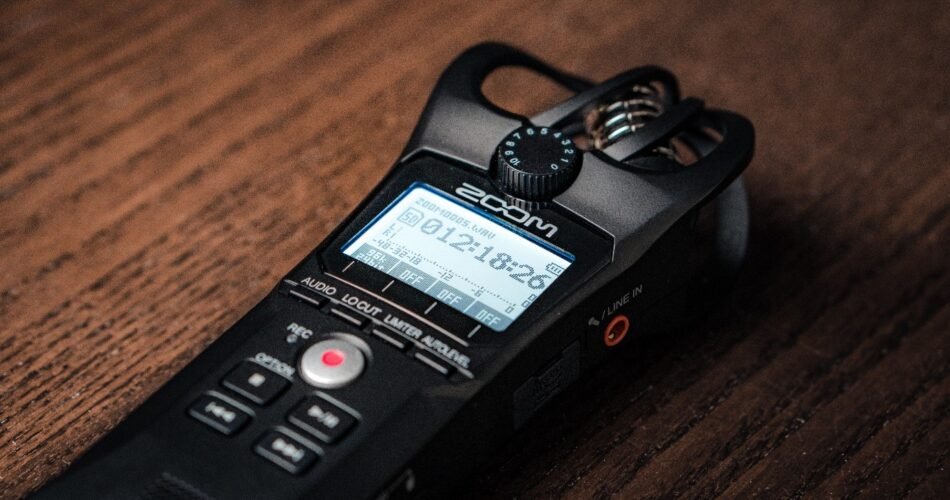In an increasingly complex and fast-paced world, the demand for discreet surveillance tools has grown. Whether it’s for personal safety, protecting property, monitoring sensitive conversations, or gathering critical evidence, the hidden recorder has become a valuable asset for many individuals and professionals. Small, subtle, and packed with powerful technology, these devices can serve a wide range of legitimate and legal purposes.
What is a Hidden Recorder?
A hidden recorder is a compact audio or video recording device designed to capture sound and/or images without drawing attention. These devices are typically embedded into everyday objects like pens, clocks, smoke detectors, USB chargers, or key fobs. Their discreet appearance makes them ideal for covert use where conventional surveillance tools might be too obvious or intrusive.
Some hidden recorders only capture audio, while others record both audio and video. They often come with motion activation, loop recording, voice-activated triggers, long battery life, and large storage capacity to ensure seamless, uninterrupted operation.
Legal Aspects of Using a Hidden Recorder
Before using a hidden recorder, it’s essential to understand the legal landscape. In many countries and states, recording someone without their consent can lead to serious legal consequences. Some jurisdictions follow a “one-party consent” rule, where only one person involved in the conversation needs to be aware of the recording. Others require “two-party consent,” meaning everyone being recorded must be informed and agree.
For instance, in the United States, federal law permits one-party consent for audio recordings, but individual states may have stricter rules. It’s always best to consult legal professionals or review local laws to ensure your use of a hidden recorder complies with regulations.
Practical Uses of a Hidden Recorder
A hidden recorder can be used in various legitimate scenarios. Parents may use them to ensure their children are being treated well by caregivers. Employers might install them to monitor customer service interactions or detect workplace misconduct. Journalists and private investigators rely on hidden recorders for discreet information gathering. Even individuals in legal disputes or divorce proceedings sometimes use them to document abuse or harassment.
These devices can also serve a protective role. Victims of stalking or verbal abuse might carry a hidden recorder as a precautionary measure. It can be a critical tool in documenting evidence that could be vital in court.
Choosing the Right Hidden Recorder
Selecting the right hidden recorder depends on your specific needs and environment. Some users may prioritize portability and opt for wearable recorders like body cams or pen recorders. Others may need room surveillance and choose devices hidden inside stationary objects like wall clocks or speakers.
Battery life and storage are two of the most important considerations. A device with limited battery power might not last through a critical situation, and insufficient storage could cause important recordings to be overwritten. Look for recorders with loop recording, voice activation, and time-stamping features for added convenience and legal credibility.
Audio quality is another critical factor. A hidden recorder is useless if it can’t clearly capture voices. High-end models offer noise reduction and multiple microphones to ensure clear audio even in large or noisy spaces.
Where to Place a Hidden Recorder
Placement of a hidden recorder is key to its effectiveness. The goal is to keep it concealed while ensuring it captures the intended audio or video. In a home setting, common areas like the living room or kitchen offer ideal coverage. At the office, placing the recorder in a desk drawer, on a bookshelf, or inside office equipment can work well.
Remember, the device should be within a reasonable range of the sound source. Placing a recorder too far from a conversation might result in poor-quality audio. Some devices come with extended-range microphones to address this issue.
Ethical Considerations and Responsible Use
While hidden recorders are powerful tools, they should always be used responsibly and ethically. Spying on others without just cause or invading someone’s privacy can damage relationships, reputations, and legal standing. A hidden recorder is not a toy—it is a surveillance tool meant for serious, justified situations.
If you’re recording in a setting where people expect privacy, such as bathrooms or bedrooms, even legal consent may not be enough to justify surveillance. It’s vital to approach every recording situation with caution and awareness of the potential ethical dilemmas involved.
Conclusion
The hidden recorder is more than just a gadget—it’s a powerful solution for those seeking to document, protect, and monitor discreetly. From safeguarding personal rights to gathering legal evidence or ensuring accountability, these devices have found a legitimate place in our modern toolkit. However, using them requires a solid understanding of the laws, ethical boundaries, and technical capabilities involved.
If you decide to use a hidden recorder, make sure it serves a lawful and just purpose. Used correctly, it can provide peace of mind, safety, and even justice.
